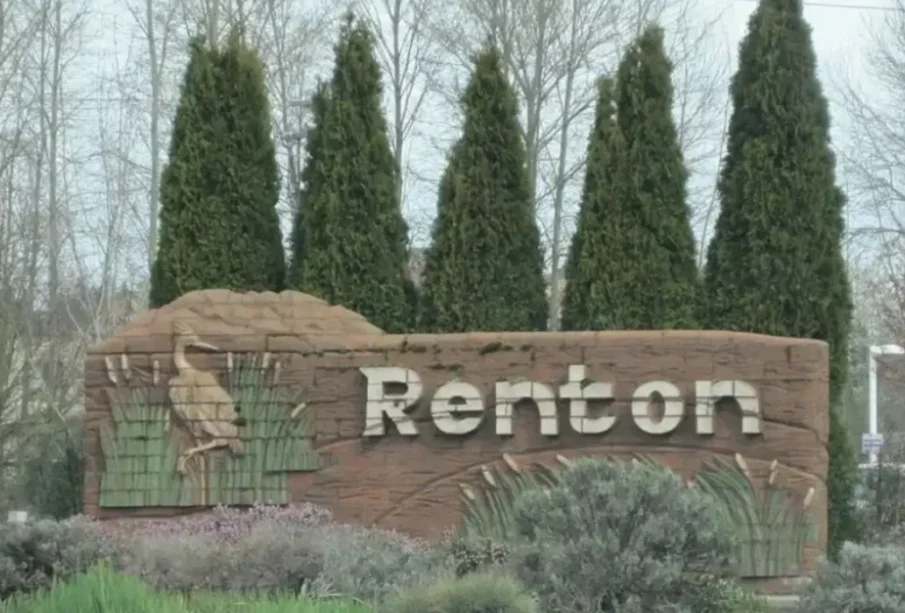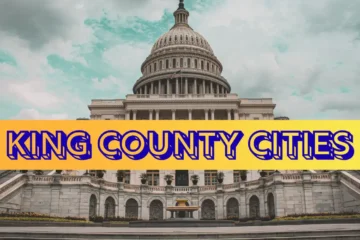Exploring the distinctive charm and evolution of King County’s cities today

Credit: Westernyankee
King County is home to a tapestry of cities, each with its own vibe, culture, and promise. But what truly makes each city unique in 2025? As the region evolves with rapid growth, innovation, and shifting demographics, these communities are redefining themselves while preserving their roots. From Seattle’s tech-forward dynamism to smaller cities’ focus on sustainability and community, King County offers a diverse palette of urban experiences.
In this post, you’ll get a behind-the-scenes look at what sets cities like Bellevue, Redmond, Kirkland, Renton, and more apart in the present day. We’ll uncover the local economies, cultural scenes, development trends, and lifestyle factors that shape each city’s identity. Whether you’re a resident, a potential mover, or just curious about the pulse of King County’s urban life, these insights will deepen your understanding of this vibrant region’s fabric.
King County’s Urban Landscape: A Snapshot of Diversity in 2025
King County, anchored by Seattle, is a hub of innovation, culture, and nature where each city contributes a distinct story. The 2025 landscape reflects decades of growth tempered by efforts to maintain livability, green space, and community identity.
“We’re seeing unprecedented demand for thoughtful urban development paired with a renaissance in local culture and sustainability,” notes urban planner Jennifer Lee.
This balance is critical as King County cities juggle population growth with infrastructure strain and housing affordability challenges. Yet, it’s this very tension that drives innovation and community collaboration across the region.
Seattle: The Tech Capital with a Cultural Pulse
Seattle remains the epicenter of King County’s economic vitality. Home to tech giants like Amazon and Microsoft (whose main campus is in nearby Redmond), Seattle’s skyline is still growing, but so is attention to quality of life.
- Innovation meets culture: From the iconic Space Needle neighborhoods like South Lake Union to culturally rich areas like Capitol Hill, Seattle blends tech-driven jobs with thriving arts, music, and culinary scenes.
- Green city initiatives: Public transit expansions, green buildings, and urban parks remain priorities here. Seattle’s recent launch of a new light rail extension exemplifies efforts to reduce car dependency.
- Housing challenges and solutions: High demand drives increasing prices, but new affordable housing projects and zoning reforms aim to keep the city accessible.
“Seattle’s strength lies in its unique juxtaposition of global business and deeply local experiences,” explains economist Sarah Johnson.
Bellevue: The Corporate Hub with Suburban Appeal
Just east of Seattle, Bellevue has evolved from a quiet suburb into a major business node with a sophisticated urban core.
- Corporate and retail growth: Headquarters of major firms like T-Mobile and Expedia fuel the economy, alongside luxury retail at Bellevue Square.
- City parks and waterfront: The city boasts extensive parklands such as the Bellevue Botanical Garden and a scenic lakefront that balance urban intensity with nature.
- Diverse communities: Bellevue’s population is highly diverse, with vibrant neighborhoods and a growing international business community.
Bellevue’s challenge: balancing fast-paced development with maintaining its reputation as an attractive, safe, and green place to live.
Redmond: Where Tech Innovation and Neighborhood Charm Meet
Known widely as Microsoft’s headquarters, Redmond combines tech muscle with local community warmth.
- Innovation ecosystem: Apart from Microsoft, Redmond incubates startups and hosts tech incubators, nurtured by a well-educated workforce.
- Family-friendly amenities: Award-winning schools, parks like Marymoor Park, and abundant trails make Redmond ideal for young families.
- Focus on sustainability: Green building standards and green transportation initiatives show the city’s commitment to eco-friendly growth.
“Redmond exemplifies how a city can be both a global tech powerhouse and a welcoming neighborhood,” shares city councilmember Diana Patel.
Kirkland: Waterfront Living with an Artistic Edge
Kirkland’s beautiful waterfront and small-town feel attract residents and visitors alike. In 2025, it blends arts, outdoor recreation, and smart growth.
- Arts and culture: Local galleries, theaters, and music festivals support a thriving arts scene.
- Lake Washington access: Waterfront parks and marinas create lifestyle appeal for boaters, cyclists, and nature lovers.
- Economic diversity: While tech plays a role, small businesses and local shops shape the city’s unique identity.
Kirkland’s ongoing expansion focuses on increasing walkability and community events that bind residents together.
Renton: The Gateway City with Growing Diversity
Renton stands out as a crucial industrial and transportation hub with a rich cultural mosaic.
- Port and manufacturing: Boeing’s presence drives aerospace jobs, while the Port of Seattle connects trade and transportation.
- Affordable housing push: Renton is working aggressively to improve housing affordability and quality of life.
- Cultural diversity: Renton hosts a kaleidoscope of communities and cultural festivals reflecting this mosaic.
Urban development here balances industrial needs with neighborhood revitalization efforts.
Other Notable King County Cities: Unique Stories in Brief
Shoreline: Suburban green spaces with urban convenience
Shoreline blends scenic parks like Richmond Beach Saltwater Park with easy access to Seattle’s job market.
Sammamish: Family-centric planned communities
Known for excellent schools and master-planned neighborhoods, Sammamish appeals strongly to families seeking suburban calm.
SeaTac: Gateway airport city with evolving economic role
Home to SeaTac International Airport, this small city is repositioning as a logistics and hospitality hub.
How King County Cities Are Innovating for the Future
Many King County cities are embracing innovation in transportation, housing, and sustainability to tackle 2025’s challenges.
- Transit-oriented development: Cities prioritize mixed-use neighborhoods around light rail and bus hubs.
- Green infrastructure investments: Projects focus on stormwater runoff, parks, and energy-efficient buildings.
- Community-driven planning: Public input and equity initiatives ensure diverse voices shape the future urban environment.
“We’re witnessing a new urban renaissance that balances growth, equity, and environment for long-term resilience,” says Jennifer Lee.
King County’s cities exemplify a dynamic mosaic where each contributes distinct values, challenges, and opportunities. As 2025 unfolds, the interplay of innovation, culture, community, and sustainability continues to define this vibrant region. Understanding what makes each city unique is essential for anyone looking to live, work, or invest here—because the future of King County is shaped in its diverse neighborhoods and the connections they foster.
FAQs on King County Cities 2025
What makes King County cities unique in 2025?
Each King County city combines distinct economic drivers, cultural assets, and lifestyle amenities. For example, Seattle leads in tech and culture, Bellevue in corporate growth, Redmond in family-friendly innovation, and Kirkland in arts and waterfront living.
Which King County city is best for families in 2025?
Redmond and Sammamish stand out for their award-winning schools, parks, and community amenities, making them highly attractive to families.
How are King County cities addressing housing affordability?
Many cities, including Seattle and Renton, are pursuing zoning reforms, affordable housing projects, and incentives for developers to increase housing access amidst rising demand.
What sustainable initiatives are King County cities implementing?
Cities focus on green infrastructure, public transit expansion, and eco-conscious building designs to promote sustainability and resilience in urban development.
How is public transportation evolving in King County cities?
Major expansions in light rail and bus networks connect cities like Seattle, Bellevue, and Redmond, encouraging transit-oriented development and reducing car dependency.








